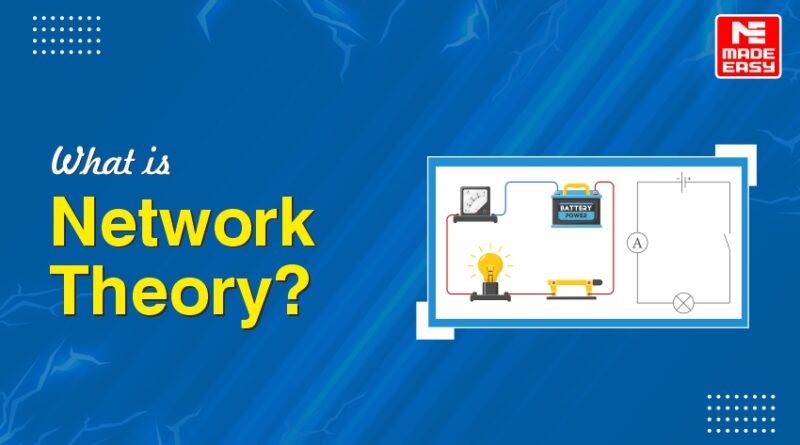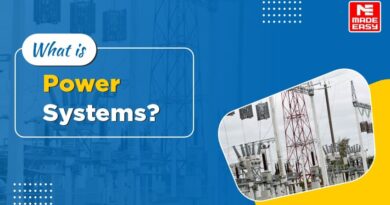What is Network Theory?
Electronics and Communication Engineering – Network Theory
Network theory in engineering is the study of how electrical and electronic circuits and systems are interconnected and how they function. It is one of the basic subjects in circuital engineering branches (electrical engineering, electronics engineering) that involves the analysis of electrical networks that consist of interconnected components like resistors, capacitors, inductors, voltage sources, current sources, etc.
Network theory provides the fundamental concepts required for understanding and designing electrical and electronic circuits and systems.
It is very important to have a good understanding of network theory in order to learn the other subjects of electrical engineering and electronics engineering easily. A good understanding of network theory would help to easily grasp concepts in other subjects such as analog electronics, power electronics, electrical machines, power systems, electromagnetic theory, etc.
The ultimate goal of network theory is to understand and predict the behavior of various circuits and elements under various conditions. Network theory also helps in determining other parameters such as power, energy, voltage, current, heat, etc. in any circuit.
Given below are the links to some major and important topics related to network theory that will be beneficial for aspiring electronic engineers:
Key Concepts:
Courses for Network Theory (EC):
Electronics engineering aspirants are pretty much aware of the high competition in this branch, and so they also understand the need of strategic preparation if attempting government engineering exams. For almost two decades MADE EASY has been a pioneer of competitive exams such as GATE, ESE and PSUs exam preparation by establishing a new benchmark every year and being a support pillar and success partner in these exams. Our courses are curated by renowned experts that focus on providing quality lectures from the basic level to advanced level. MADE EASY provides aspirants the right guidance to maximize their performance and achieve success. Candidates from electrical engineering and electronics engineering branches are advised to visit on the links given below to know more about courses that include key concepts of engineering branches taught from basic level and prepare aspirants for the future.
- GATE : 1 Year Foundation Course
- ESE+GATE : 1 Year Foundation Course
- GATE + SES (GS) : 1 Year Foundation Course
- GATE & SES (GS) 2025-26 Live Online Foundation Course
- ESE + GATE + SES (GS) 2025-26 Live Online Foundation Courses
Recommended Books for Network Theory
Books are still an essential part of learning as they offer in-depth knowledge in various topics. Learning books are well structured and provide comprehensive understanding making them invaluable for students and lifelong learners. MADE EASY Publications is one such platform for students who are looking for high quality and well structured content for their preparation. Our platform consists of government engineering exams books which are curated by a team of experts and experienced authors. Electronics and Communication engineering aspirants are suggested to click on the links mentioned below to learn more in depth about network theory:
- A Handbook on Electronics Engineering
- GATE-2025: Electronics Engineering Previous Year Solved Papers
- 4000 MCQ : Electronics Engineering
FAQs:
1. What is dependent source and independent source?
Ans. The element for which either the voltage or current depend upon a current or voltage elsewhere in the circuit; such elements are called a dependent source.
If the terminal voltage is completely independent of current, or the current is completely independent of voltage, then the element is called an independent source.
2. What is capacitor in Electronics?
Ans. A capacitor is a passive element designed to store energy in its electric field.
3. What is an inductor in Electronics?
Ans. An inductor is a passive two-terminal electrical component that stores energy in a magnetic field when electric current flows through it. An inductor typically consists of an insulated wire wound into a coil.
4. What is a resistor in Electronics?
Ans. Resistor is an element which opposes the flow of charge.




